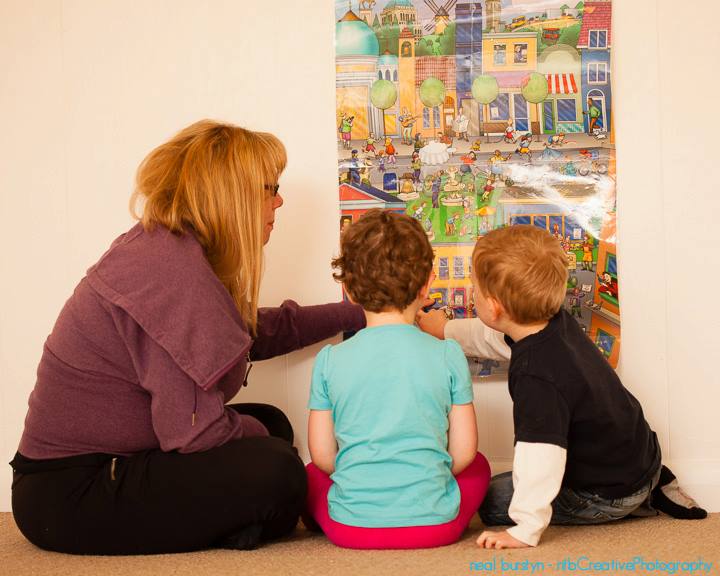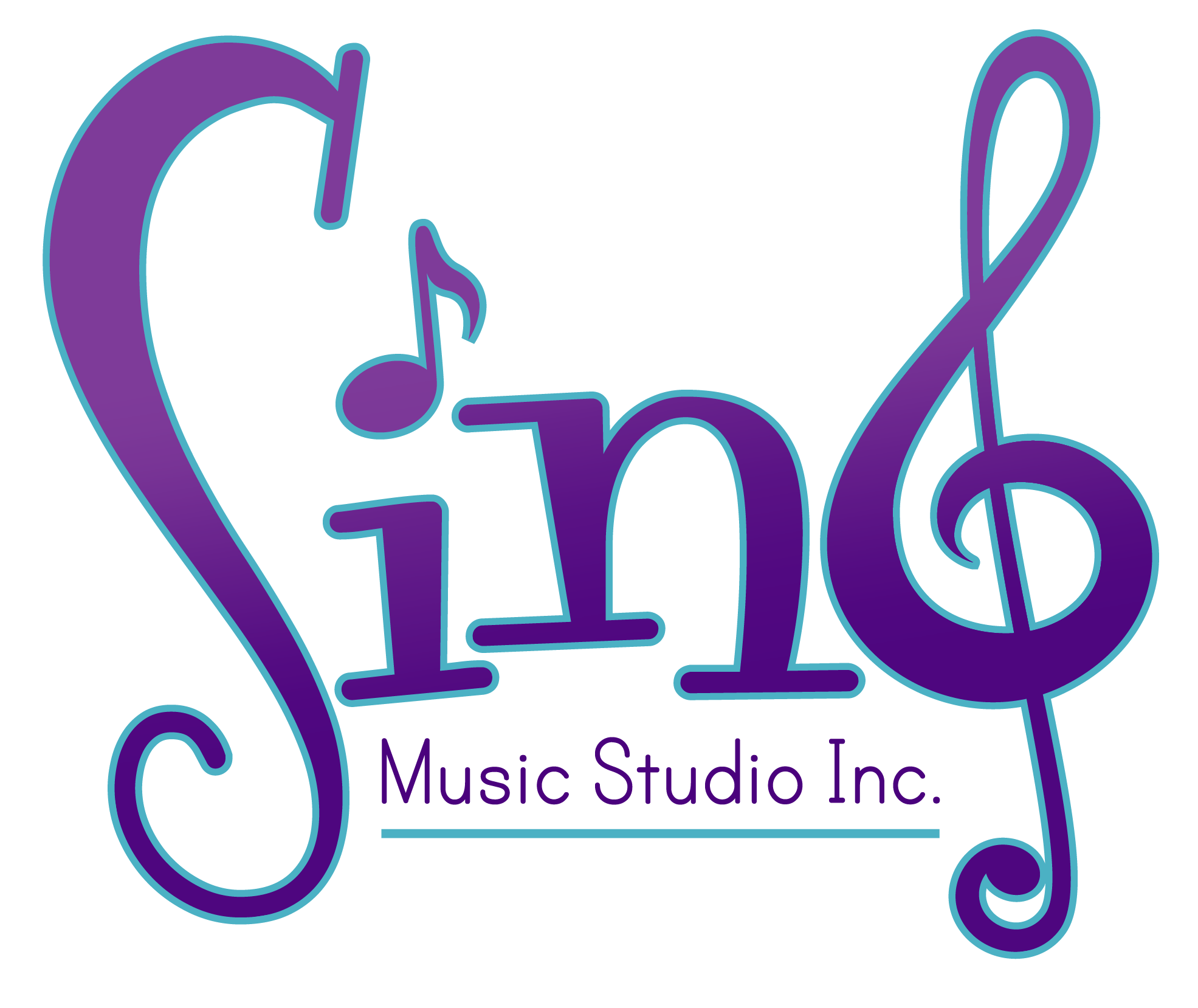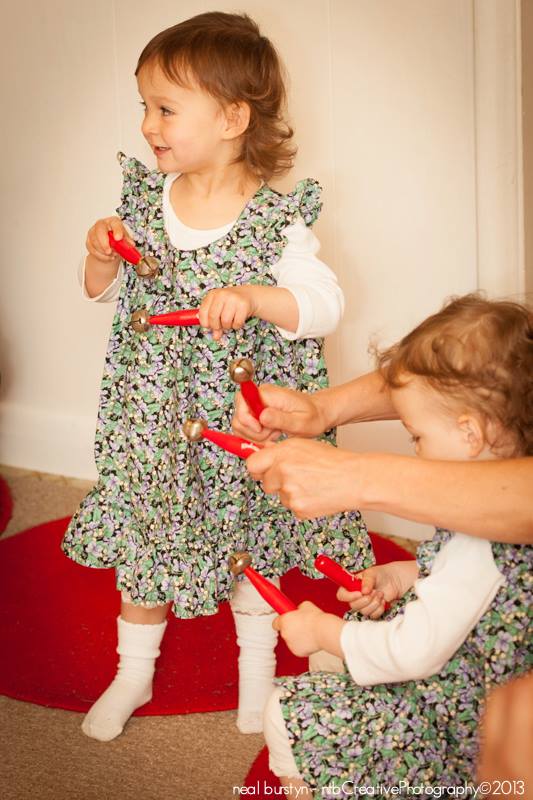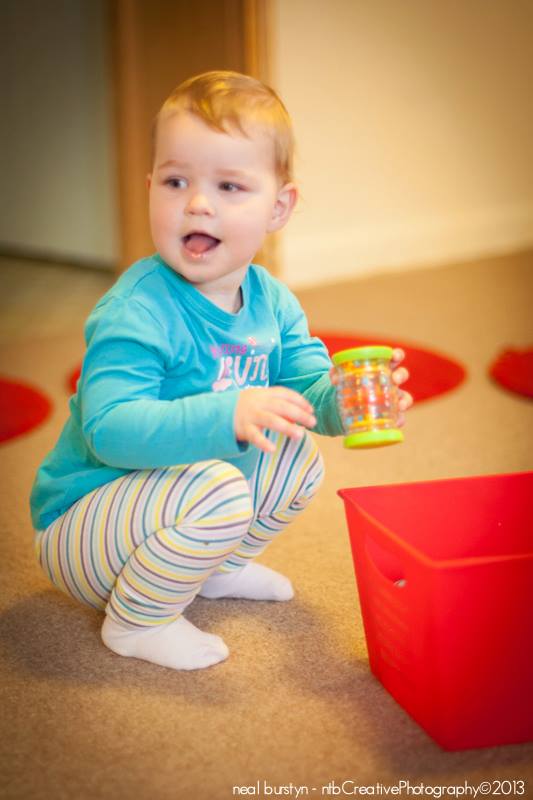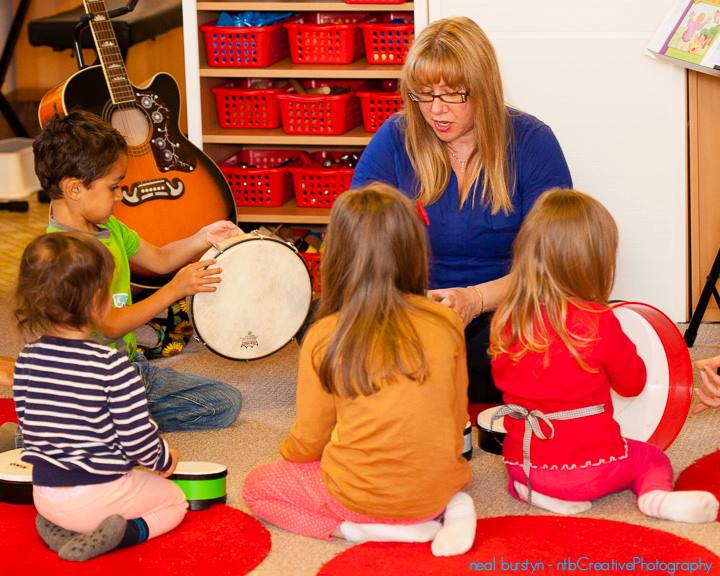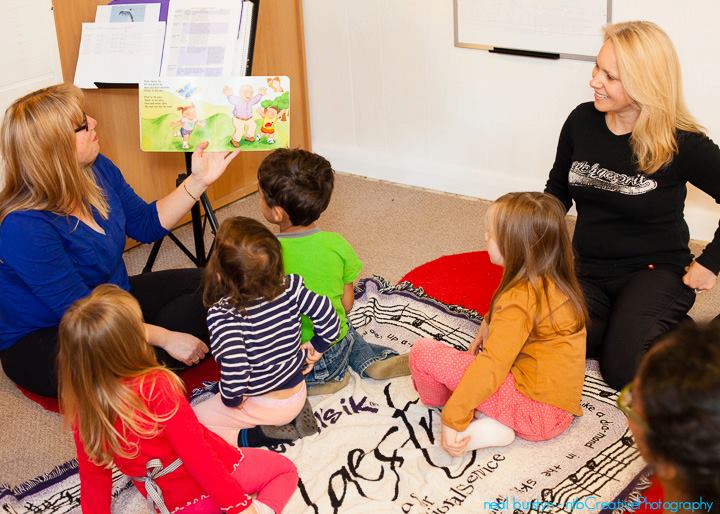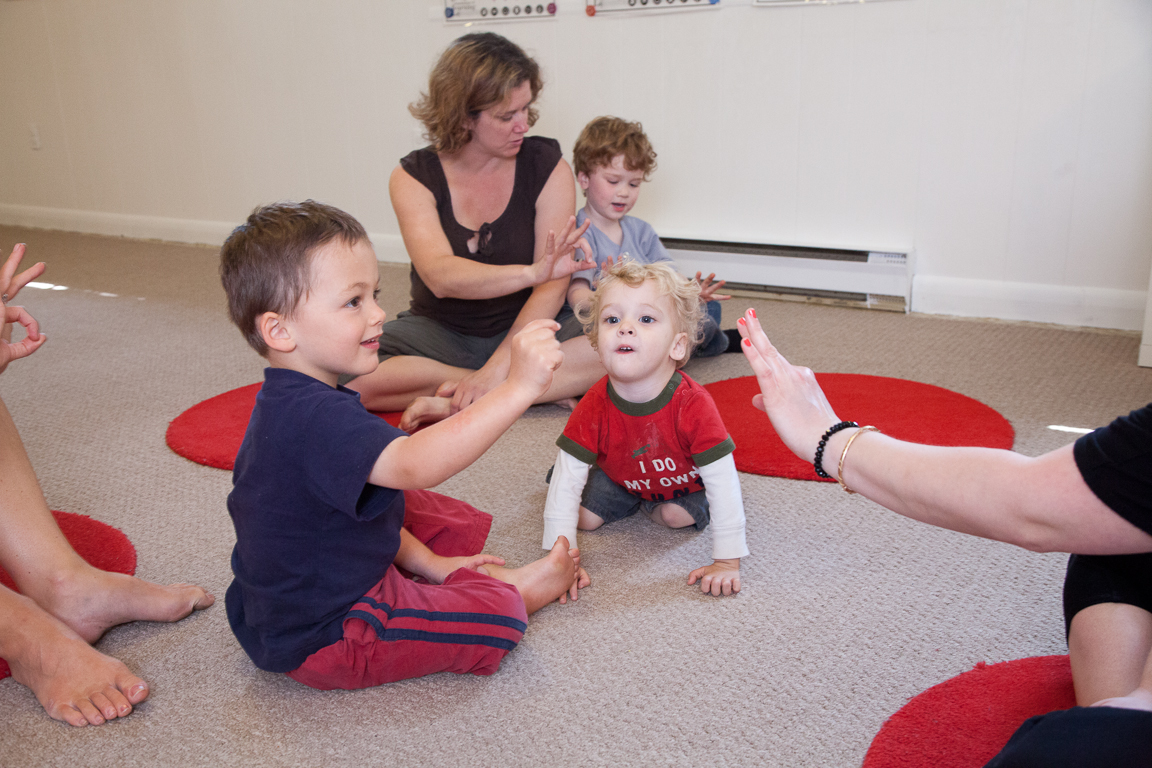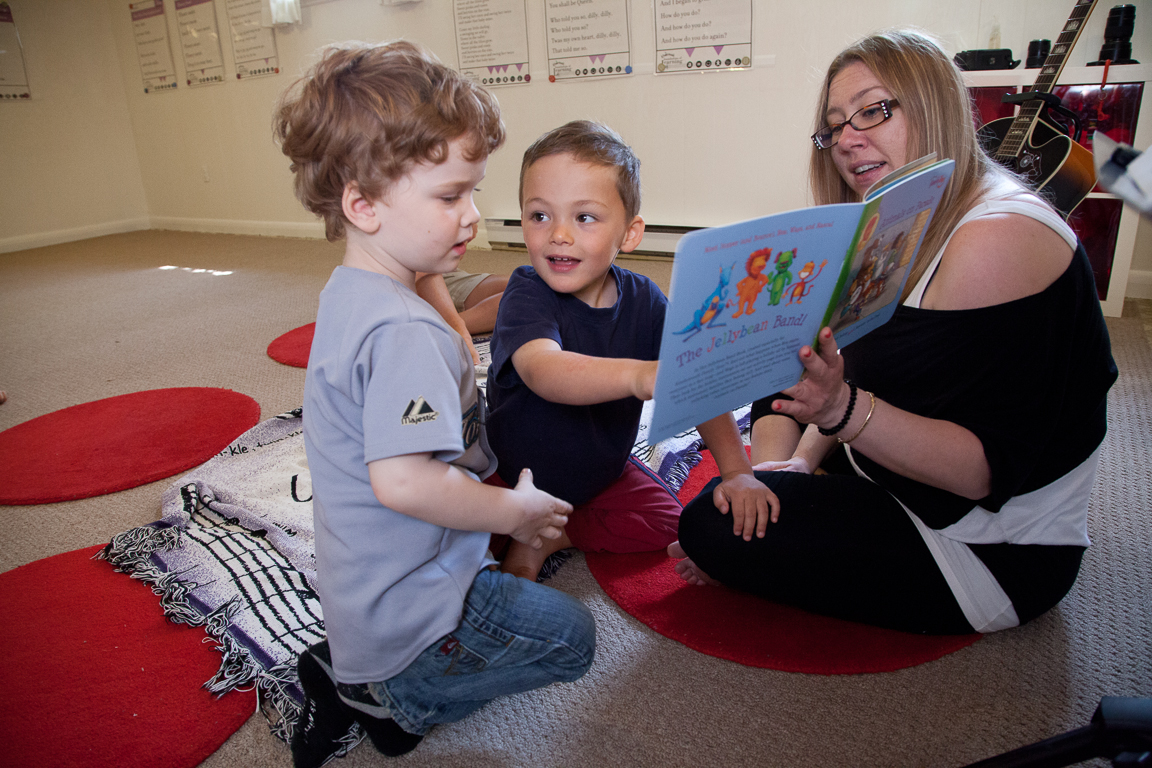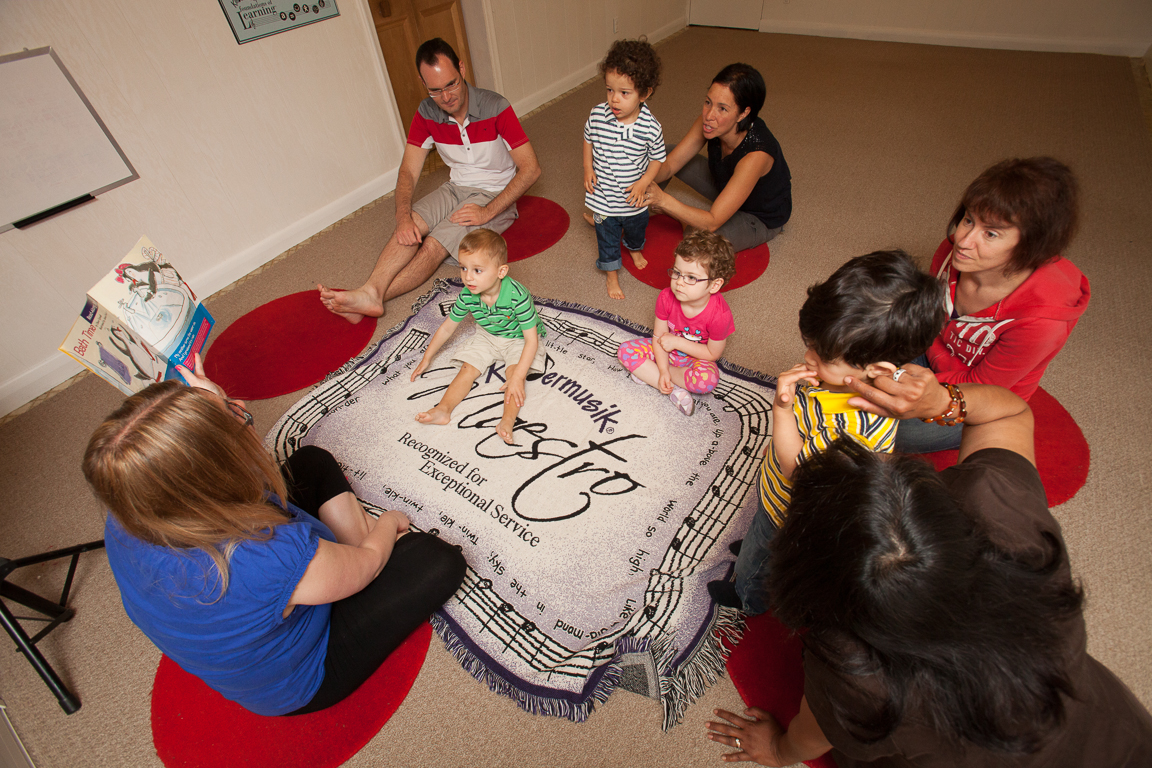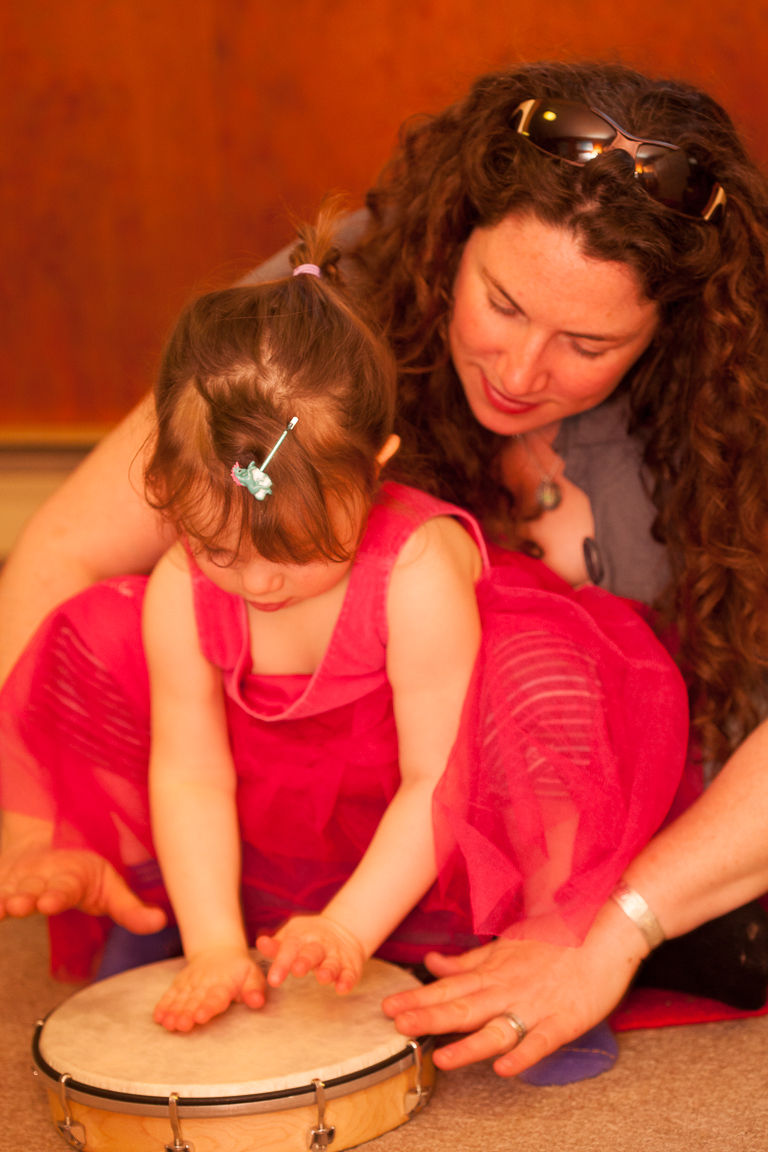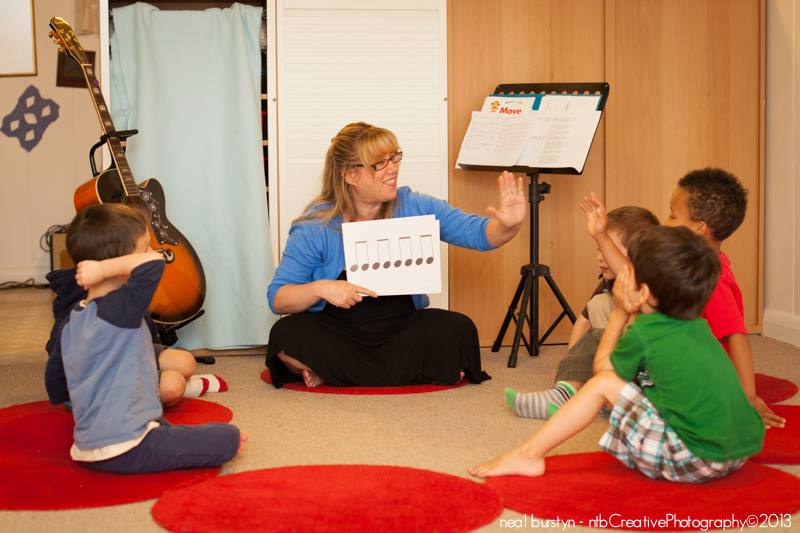
You want to enroll your child in music. You already know the benefits of music and how much it can enhance your child’s learning and school readiness. But how do you know whether to choose a Kindermusik class or a private piano lesson?
It’s easy for me to tell by seeing how your child interacts with me, in class or a lesson. But let’s face it, your 4-5 year old behaves differently with mom or dad than with a teacher and peers. So here are a few key things to look for when deciding between a piano lesson or Kindermusik.
About us: Sing Music Studio offers Mississauga piano lessons, guitar lessons, singing lessons, and so much more in addition to Kindermusik. For more information about our studio, please get in touch!
How To Decide Between Kindermusik or Private Piano Lessons
Where Do Your Child’s Interests Lie?
Does she keep asking for lessons or sit down often at the keyboard or piano to play or make up tunes? If your child is showing a keen interest in piano, then that’s a good indication that a lesson is the right fit. If your child loves music and singing but is not yet gravitating to a specific instrument or is more interested in guitar or other instruments that are challenging for a 4-5 year old’s fine motor skills, a Kindermusik class where we introduce a few different melodic instruments and continue to work on fine motor skill development is likely the right option.
What Is Your Child’s Energy Level Like?
Do you have an active, high energy child on your hands who love to go, go, go? This child would likely fare well in the Kindermusik class where we use a combination of movement activities (like the human staff), games, active listening and playing a variety of instruments to teach your child the basics of music. Or maybe you have a quieter child who prefers to listen and watch can easily focus attention and responds well to one-on-one interactions. In that case a private piano lesson is probably the best option.
Is Your Child an Introvert or Extrovert?
An extroverted child will more likely be comfortable in the Kindermusik class environment interacting with his peers while an introverted child will likely feel more comfortable and confident in the one-on-one piano lesson.
Of course these are just guidelines and while an introverted child may get just as much out of the classroom environment, a high energy child who adores piano would likely do just fine in a piano lesson!
The best way for me to tell is to teach your child! So if you still aren’t sure, then join us for our Kindermusik Demo Days or visit a class for a preview or sign up for a 4 week trial in piano lessons. I am here to help you find the best musical fit for your child.
Don’t Feel Pressured To Place Your Child in Piano Lessons Too Early
Many parents see videos of prodigies and want to enroll their kids in private lessons at 2, 3, and 4 years old. This may not be a great choice for your child (depending on the above questions). If a young child is driven and laser-focused on the piano, then of course you should consider lessons. But many kids would benefit more from the creativity, fun, and discovery learning associated with Kindermusik. A general music class with peers could develop a love for music in your child, and that will ensure long term improvement on an instrument more than an extra year of lessons early in a child’s life.
Furthermore, many children who start piano at 8, 9, or 10 years old quickly catch up to peers who started much younger – that’s because if a child starts at that later age because they want to play piano, they will have the discipline to practice well every day.
If You Do Choose Private Lessons, Make Sure They Aren’t “Stuffy”
At Sing Music Studio, our music lessons are interactive, fun, and engaging for children. It would be terrible to “turn off” a child to music simply because they hated their lessons.
Your child will have activities away from the piano, enjoy the use of apps, games, and other modern technology, and learn tunes they can enjoy right from the beginning of their journey in lessons.
